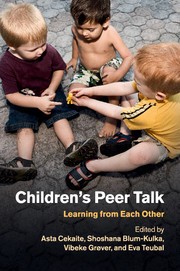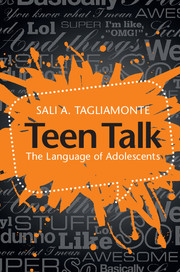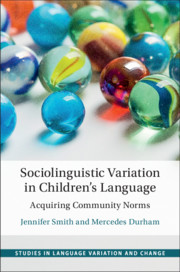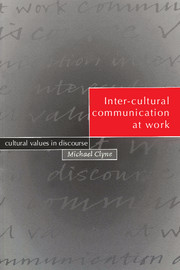Children's Peer Talk
Inside and outside the classroom, children of all ages spend time interacting with their peers. Through these early interactions, children make sense of the world and co-construct their childhood culture, while simultaneously engaging in interactional activities which provide the stepping stones for discursive, social and cognitive development. This collection brings together an international team of researchers to document how children's peer talk can contribute to their socialization and demonstrates that if we are to understand how children learn in everyday interactions we must take into account peer group cultures, talk, and activities. This book will be of interest to students and researchers in the fields of language acquisition, sociolinguistics, pragmatics and discourse analysis, and related disciplines. It examines naturally occurring talk of children aged from three to twelve years from a range of language communities, and includes ten studies documenting children's interactions and a comprehensive overview of relevant research.
- Includes studies from a range of language communities so that readers can get a broad view of communicative practices
- Includes data from peer interactions and will appeal to those who are interested in naturally occurring learning processes
- Develops an interdisciplinary approach to children's peer discourse and culture and will appeal to readers from a range of academic fields, including language, education and anthropology
Reviews & endorsements
'Child language researchers and early childhood educators have long focused on the opportunities to learn inherent in adult-child interactions. The chapters in this book make clear that peer interactions offer similarly rich, but very different, opportunities to acquire communicative and language skills. Readers of this book will understand the value of attending carefully to those opportunities and to the skills they promote.' Catherine Snow, Patricia Albjerg Graham Professor, Harvard Graduate School of Education
'A major contribution demonstrating how talk children produce for each other provides important resources for learning a second language, discursive literacy, vocabulary learning, cognitive, linguistic and social development, with important implications for reorganizing classroom dynamics.' Marjorie Harness Goodwin, University of California, Los Angeles
'People live and develop in discourse communities. In the present volume, we learn how children's peer groups and peer activities serve as sites of learning and growth. This in-depth account forms an exciting and most welcome contribution to the literature.' Roger Säljö, University of Gothenburg
Product details
March 2017Paperback
9781316644904
290 pages
230 × 150 × 15 mm
0.43kg
16 b/w illus. 6 tables
Available
Table of Contents
- 1. Children's peer talk and learning: uniting discursive, social and cultural facets of peer interaction. Editors' introduction Asta Cekaite, Shoshana Blum-Kulka, Vibeke Grøver and Eva Teubal
- Part I. Children's Peer Talk and Extended Discourse:
- 2. 'Now I said that Danny becomes Danny again' – a multifaceted view of kindergarten children's peer argumentative discourse Sara Zadunaisky Ehrlich and Shoshana Blum-Kulka
- 3. Narrative performance, peer group culture and narrative development in a preschool classroom Ageliki Nicolopoulou, Carolyn Brockmeyer Cates, Aline de Sá and Hande Ilgaz
- 4. 'Let's pretend you're the wolf!' The literate character of pretend play discourse in the wake of a story Esther Vardi-Rath, Eva Teubal, Hadassah Aillenberg and Teresa Lewin
- 5. Explanatory discourse and historical reasoning in children's talk: an experience of small group activity Camilla Monaco and Clotilde Pontecorvo
- 6. Evaluation in pre-teenagers' informal language practices around texts from popular culture Janet Maybin
- Part II. Children's Peer Talk and Second Language Learning:
- 7. Peer interaction, framing and literacy in preschool bilingual pretend play Amy Kyratzis
- 8. Metasociolinguistic stance taking and the appropriation of bilingual identities in everyday peer language practices Ann-Carita Evaldsson and Sahlström Fritjof
- 9. 'Say princess' – the challenges and affordances of young Hebrew L2 novices' interaction with their peers Shoshana Blum-Kulka and Naomi Gorbatt
- 10. Language play, peer group improvisations and L2 learning Asta Cekaite and Karin Aronsson
- 11. The potentials and challenges of learning words from peers in preschool. A longitudinal study of second-language learners in Norway Veslemøy Rydland, Vibeke Grøver and Joshua Lawrence
- 12. What, when and how do children learn from talking with peers? Katherine Nelson.






